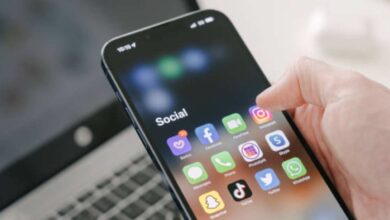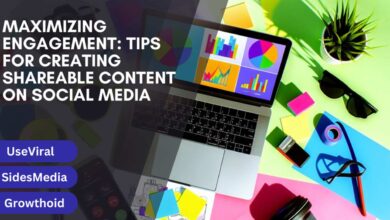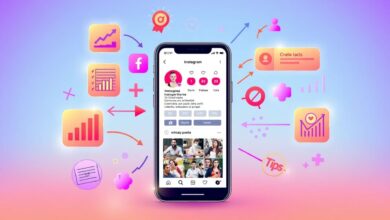Without noticing it, information from your Facebook profile could flow to strangers. We explain how you can restrict this.
Caution in the Facebook app center applies: Some of the games can be granted access to your data and would also like to post contributions in your profile.
The essentials in brief:
Facebook apps are small programs such as games, surveys, or tests. If you use these apps, you may also give third parties access to your Facebook data.
It is often enough if you use your Facebook account as a login on other websites.
You can already achieve better data protection if you make as little information as possible from yourself and do not take part in games on Facebook.
It is practical: do not create a new account with the ePaper of the newspaper, but simply use a Facebook login. Single sign-on means that and is described in more detail here. Or funny: to find out which animal could probably be reborn. Facebook offers such opportunities. Small applications that run on Facebook and are called apps on Facebook are usually necessary for this. Do you know how many apps you have activated on Facebook and which of your data they access? Not to mention what the providers of these apps do with their data …
The first tip sounds lapidary: only use applications that you really need and find out (for example in the data protection declaration of the providers) what happens to your data. Leave the fingers of tests that want to tell you which film figure you are similar to, who is really in love with you, or whatever is offered there. Data that has been tapped can no longer be captured! Ultimately, with too much spam or SMS waste, only new email addresses and mobile phone numbers help.
Tip two: You can regulate in the Facebook settings (login required) what such apps can do with the information in your Facebook profile and which of your Facebook data you can access. It works like this:
Setting the apps on Facebook on the smartphone/tablet
- Open the “Facebook” app on your cell phone or tablet (if installed).
- Open the “burger menu” (the three horizontal lines).
- Wipe up and tap on “Settings and Privacy“.
- Tap on “Settings“.
- If necessary, wipe up a little and tap on “Apps and Website” (this link also leads you right there).
- If you use apps with your Facebook profile, see a box with the heading “Signed with Facebook“. Tap “Edit” there.
You can tap any single app. There you will then be listed to which of your profile information the application may access and who can see on Facebook that you use this app. You can change some of it by tapping the corresponding words.
If you don’t want to use the app any longer, wipe it up and tap on the “Remove the app” page at the bottom.
Setting the apps on Facebook on the PC
- After registering on Facebook, click the circle with your profile picture.
- Click on “Settings and Privacy“, then on “Settings“.
- In the left navigation bar, click on “Apps and Website” (this link also leads you right there if you are registered on Facebook in another browser window).
The apps carried out are displayed in boxes. Click them to see the authorizations of the app and change or remove the application if necessary.
Set access rights for apps on Facebook
If you now see that you have activated apps on Facebook, you can manage the permissions for data access. For each app, it is displayed individually which of your Facebook data you can access. Most should be required a “public profile“. You may be able to remove many other hooks (such as “publish content in your name“). Of course, it may then no longer work as it should. However, we recommend that we do as little as possible. If a catch cannot be removed and you do not want to allow access to the data or functionality of the application, you ultimately have no choice but to remove the app.
By the way, Google also offers a comparable overview of Facebook for its users. There the area is called “apps with account access“.
What apps could do with their information
There are apps that comment on other articles in their name, like, or even write. For example, cases in which Facebook users suddenly advertise fake shops are known without knowing or wanting it. Many phishing emails or fraud SMS (e.g. “parcel service” and “Voice mail“) are often sent in waves after someone has compiled public information from the profiles of social networks. Scraping is the technical term for this.
In addition, the app operators can also use the data obtained for their own purposes in the background. Example: You have allowed an app to access your public profile and publicly show your relationship status. The app can record this information and send it to the operator. This could experience, among other things,
whether they live in a relationship
what sexual orientation you have.
These are important personal data. Sexual orientation, for example, is particularly worthy of protection according to applicable data protection law. That means: If you want to know this from you, you must have a special interest in it and be able to justify it. And you usually have to expressly consent to use.
What could happen? Not only advertisements are conceivable that are tailored to them very precisely and thus seduce them even more easily. It can be worse in other countries in which punishments are threatened with certain sexual orientations. In this way, personal data such as email addresses and mobile phone numbers can also be collected and published as a so-called leak. For example, it happened on Easter 2021. The scandal around Facebook and the British consulting company Cambridge Analytica shows that data obtained can also be used in this way to influence their decisions and even manipulate elections.
“Apps used by other users”
By the beginning of April 2018, Facebook also offered the possibility that users were able to determine which of their data can access the apps that their friends activated. “Other users used apps” was the name of the area that has now been removed. According to Facebook, apps are generally no longer allowed to access information from friends. Cambridge Analytica with an app called “This Is Your Digital Life” still used this option.
Data breakdowns and leaks from Facebook user data
A leak means the unauthorized publication of information. In the past, some large leaks have become known in connection with apps that are operated on Facebook. Examples:
More than 400 apps took off login data for Facebook accounts
On October 7, 2022, Facebook himself informed that criminals with more than 400 apps for Android and iOS captured the access data from Facebook members. This is not a data leak on Facebook, but phishing applications. You pretend a login with the Facebook account (more on this in the text about “Single-Sign-on”). In fact, they only provide a form via which the entered access data (e.g. email address and password) are sent to the criminals. They can then register in the real Facebook account of the victim and abuse it for crimes.
Data of 1.5 billion Facebook members on the offer
At the beginning of October 2021, the Romanian internet security portal Privacyaffairs.com reported that collected data of 1.5 billion Facebook members in the Darknet were offered for sale. This would affect half of all Facebook users worldwide. The authors of the website emphasize that there was no evidence of a security leak or a hack on Facebook and that no passwords were published. The data records should contain the following information (if they were specified by those affected on Facebook): Name, email address, telephone number, place of residence, gender, and user ID. Two days later, the offer was removed from the Hacker Forum.
Published 530 million Facebook user data







